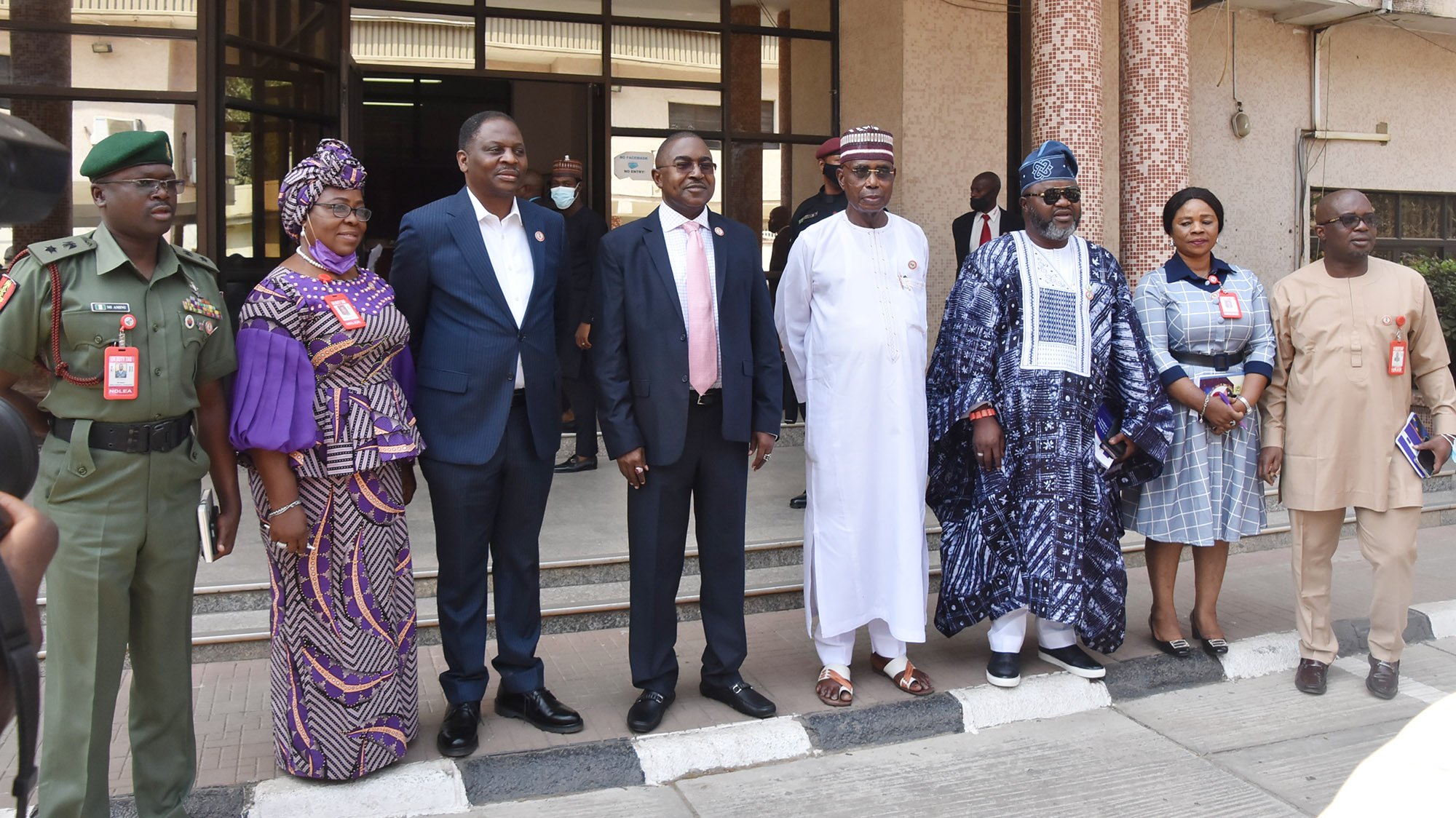Business
FG To Convert 200,000 Vehicles To Autogas … Plans 580 Refuelling Centres

The Federal Government (FG) says it has perfected plans for the full deployment of autogas in filling stations and the conversion of 200,000 commercial vehicles to run on gas this year.
This was disclosed in a meeting with oil marketers in the downstream sector convened by the Minister of State for Petroleum Resources, Chief Timipre Sylva, in Abuja.
The meeting in which government unveiled the 2022 Framework for the deployment of CNG (Compressed Natural Gas, popularly called autogas) in Nigeria, had in attendance Senior officials of the Major Oil Marketers Association of Nigeria, Depot and Petroleum Products Marketers Association of Nigeria, as well as other key players in the downstream sector.
At the meeting, Sylva told his guests that the government was out to ensure that it made available the alternatives required before the removal of subsidy on Premium Motor Spirit (petrol), stressing that the deployment of autogas was one of such key alternatives.
He also stated that the government would be supporting them with 50 per cent of the conversion kits to fast-track the process, adding that additional support as required would be given, going forward.
“We said we must provide alternative fuel and the alternative that we concluded on was the autogas alternative. To provide it for our people,” the Minister said.
He continued that “Since this agreement between us (government and marketers), a lot of work has been going on and we have come to a certain point where we need to take it further. But we cannot move further without ensuring that you as our partners are fully on board.”
In the framework, the government explained that with abundant gas reserves of about 206.53 trillion cubic feet, a population of about 200 million people, and the enactment of the Petroleum Industry Act, which eliminated the continuous absorption of petrol subsidy, it was now vital to deploy autogas.
The goverent stated that its priority now was the rapid and strategic introduction of Natural Gas Vehicles as an alternative fuel for transportation in Nigeria in line with the approved National Gas Policy.
“This will pave the pathway to full deregulation of the downstream petroleum sector in Nigeria, while reducing the effect of deregulation on transportation costs,” the document read in part.
It added that “The Ministry of Petroleum Resources was charged with the responsibility to provide autogas (LPG, CNG, LNG) as an alternative and competitive fuel for mass transportation
“CNG was selected as the fuel of choice because it holds a comparative advantage due to its ease of deployment, its comparatively lower capital requirements, commodity’s supply stability, existing in-country volumes, and local market commercial structure which relies predominantly on the naira.
“Hence a single track CNG deployment is proposed in the initial phase and other alternatives can be considered as the market attains maturity.”
Three implementation options were highlighted in the document, as the government stated that in the first option, its target was to convert one million public transport vehicles and install 1,000 refueling centres within 36 months.
For the first 18 months it targets to achieve 500,000 conversions and 580 refueling centres supplied by five Original Equipment Manufacturers, among other targets.
In the plan, the government targets to convert 200,000 commercial vehicles this year, including tricycles, cars, mini-buses and large buses.
The cities captured in Phase 1 of the project include Abuja, Kaduna, Kano, Kogi, Kwara, Lagos, Ondo, Oyo, Edo, Delta, Bayelsa, Niger, and Rivers.
Cities under Phase 2 were listed as Sokoto, Katsina, Jigawa, Borno, Bauchi, Gombe, Yobe, Osun, Ekiti, Enugu, Anambra, Imo, Cross River, Abia, Akwa Ibom and Plateau. For Phase 3 cities, they were listed as Kebbi, Zamfara, Yobe, Gombe, Taraba, Adamawa, Benue and Ebonyi.
Transport
Automated Points Concession : FAAN Workers Gave 72hrs To Revise Decisions In PH

Transport
FAAN Announces Pick-Up Points for Go-Cashless Cards

Business
Fidelity Bank To Empower Women With Sustainable Entrepreneurship Skills, HAP2.0
-

 News5 days ago
News5 days agoDisu Takes Over As New IGP …Declares Total War On Corruption, Impunity
-
Politics2 days ago
2027: NIGERIANS FAULT INEC ON DIGITAL MEMBERSHIP REGISTER DIRECTIVE
-

 Environment2 days ago
Environment2 days agoLAWMA Director Says Sweeping Reforms Have Improved Waste Collection
-
Politics2 days ago
LP Crisis: Ex-NWC Member Dumps Dumps Abure Faction
-

 Sports2 days ago
Sports2 days agoAbia Not Sure To Secure continental Ticket
-

 Politics2 days ago
Politics2 days agoUmahi Dismisses Allegations On Social Media, Insists On Projects Delivery
-

 Transport2 days ago
Transport2 days agoFAAN Announces Pick-Up Points for Go-Cashless Cards
-
Sports2 days ago
La Liga: Yamal Records First Career Hat-trick

